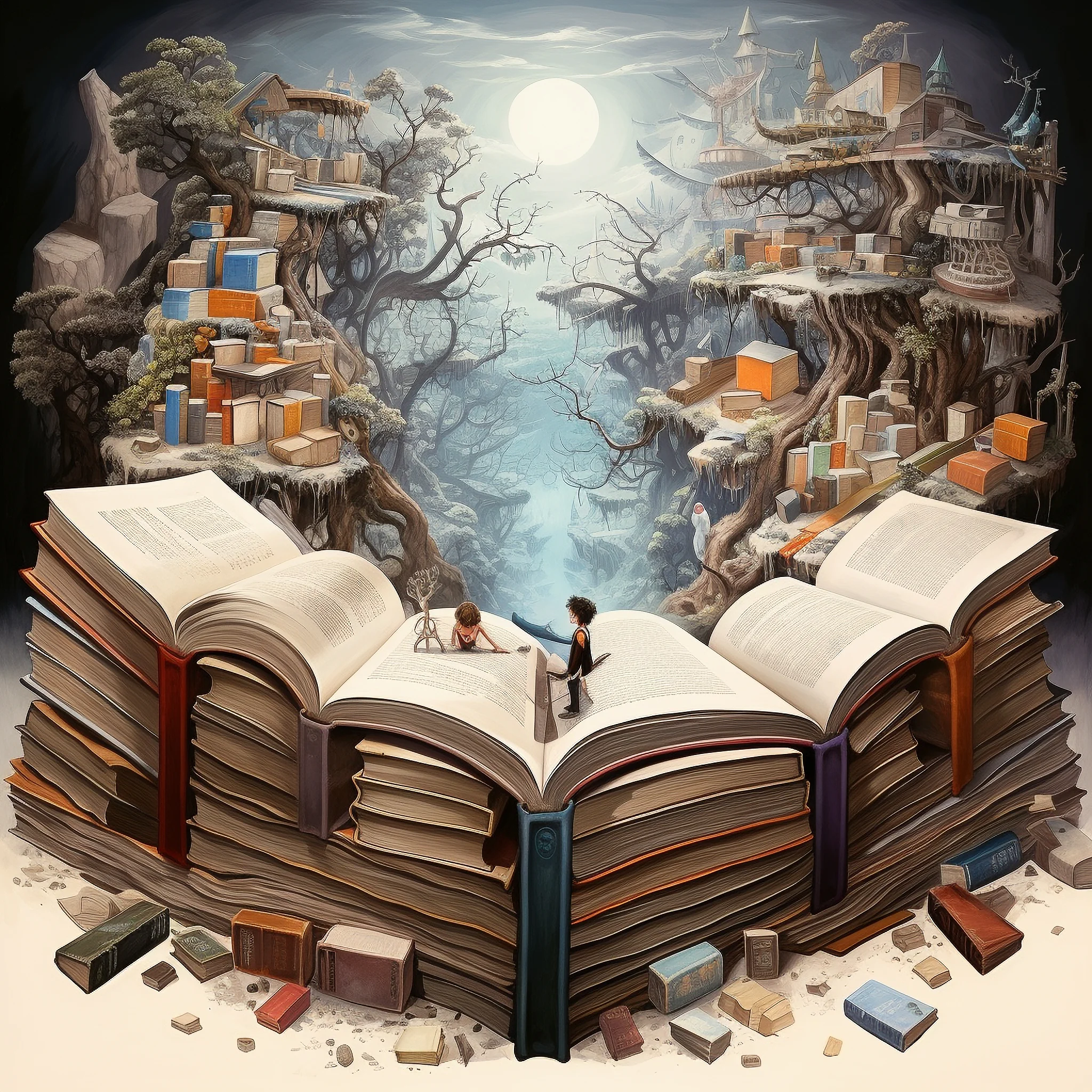Introduction
Postcolonial literature, emerging from the historical context of colonization and its aftermath, offers profound insights into the complexities of cultural identity. This literary genre engages with themes of race, power, displacement, and hybridity, reflecting the nuanced experiences of societies transitioning from colonial rule to self-determination. By exploring the struggles of individuals and communities grappling with the legacies of colonization, postcolonial literature provides a mirror to the evolving narratives of cultural identity in a globalized world.
The Emergence of Postcolonial Literature
Historical Context and Its Influence
Postcolonial literature is deeply rooted in the historical experiences of colonized societies. The period of colonization, marked by the imposition of foreign rule and cultural dominance, left enduring legacies on the societies subjected to it. The literature that followed the decolonization process often sought to address these legacies, reflecting the impact of colonialism on cultural identity.
Key Characteristics of Postcolonial Literature
Postcolonial literature is characterized by its exploration of themes such as cultural hybridity, the clash of traditions, and the quest for identity. Authors often utilize narrative techniques that challenge traditional Western literary forms, incorporating indigenous languages, oral traditions, and non-linear storytelling to reflect the complexities of postcolonial identities.
Themes in Postcolonial Literature
Cultural Hybridity
One of the central themes in postcolonial literature is cultural hybridity. This concept, popularized by theorists like Homi K. Bhabha, refers to the blending of cultural elements from both the colonizer and the colonized. Literature that explores hybridity often reflects the ways in which individuals and societies negotiate their identities in the context of cultural exchange and fusion. For instance, in Salman Rushdie’s “Midnight’s Children,” the protagonist’s identity is intertwined with the historical and cultural upheavals of postcolonial India, illustrating the complex interplay of diverse cultural influences.
Identity and Displacement
Displacement, both physical and psychological, is another recurring theme. The experience of displacement—whether due to migration, exile, or the erosion of traditional ways of life—plays a significant role in shaping postcolonial identities. Authors like Chinua Achebe, in “Things Fall Apart,” depict the disintegration of indigenous cultures and the resulting crisis of identity faced by individuals and communities. The tension between traditional cultural values and the pressures of modernity often highlights the struggles inherent in forming a coherent sense of self in a postcolonial context.
Power and Resistance
The dynamics of power and resistance are also pivotal in postcolonial literature. The literature often addresses the ways in which colonized peoples resist and challenge the impositions of colonial power. This resistance can manifest in various forms, including political activism, cultural revival, and the reclaiming of narrative voices. Ngũgĩ wa Thiong’o’s “Decolonising the Mind” explores the role of language and literature in resisting colonial domination and asserting cultural identity.
Narrative Techniques and Literary Forms
The Use of Indigenous Languages and Oral Traditions
Postcolonial literature frequently incorporates indigenous languages and oral traditions, challenging the dominance of colonial languages and literary forms. This approach serves to affirm the value of indigenous cultures and offer a more authentic representation of postcolonial experiences. Works such as Gabriel García Márquez’s “One Hundred Years of Solitude” employ magical realism to merge the fantastical with the real, reflecting the hybrid nature of postcolonial identities.
Non-Linear Storytelling
Non-linear storytelling is another technique used in postcolonial literature to reflect the fragmented and multifaceted nature of cultural identity. Authors often employ fragmented narratives, multiple perspectives, and shifting timeframes to convey the complexity of postcolonial experiences. For example, in Jean Rhys’s “Wide Sargasso Sea,” the narrative structure mirrors the protagonist’s fractured sense of identity and her struggle to reconcile her Caribbean heritage with colonial influences.
Postcolonial Literature and Globalization
The Impact of Globalization on Cultural Identity
In the context of globalization, postcolonial literature continues to explore the shifting dynamics of cultural identity. The interconnectedness of the global economy and cultural exchange can both challenge and enrich traditional identities. Postcolonial authors address how globalization affects cultural practices, values, and identities, often reflecting on the tensions between global influences and local traditions.
Contemporary Voices in Postcolonial Literature
Contemporary postcolonial literature includes voices from previously marginalized communities, offering new perspectives on the complexities of identity in a globalized world. Authors such as Chimamanda Ngozi Adichie and Zadie Smith address themes of migration, diaspora, and multiculturalism, reflecting the diverse and evolving nature of cultural identities in the 21st century.
Conclusion
Postcolonial literature provides a rich and nuanced exploration of cultural identity, reflecting the complexities and contradictions inherent in the postcolonial experience. By engaging with themes of hybridity, displacement, and resistance, and employing innovative narrative techniques, postcolonial authors offer profound insights into the ways individuals and societies navigate the legacies of colonization. As globalization continues to shape cultural landscapes, postcolonial literature remains a vital medium for understanding and expressing the evolving nature of cultural identity in a rapidly changing world. Through its diverse voices and perspectives, postcolonial literature contributes to a deeper appreciation of the multifaceted and dynamic nature of identity in the contemporary era.



